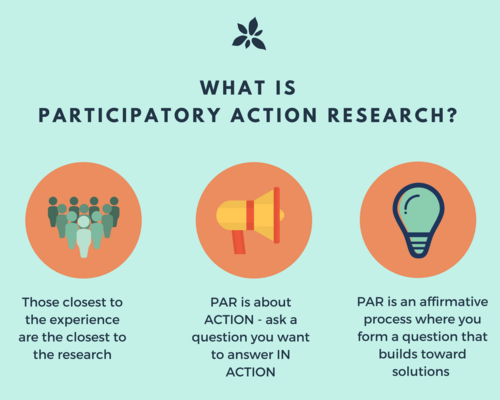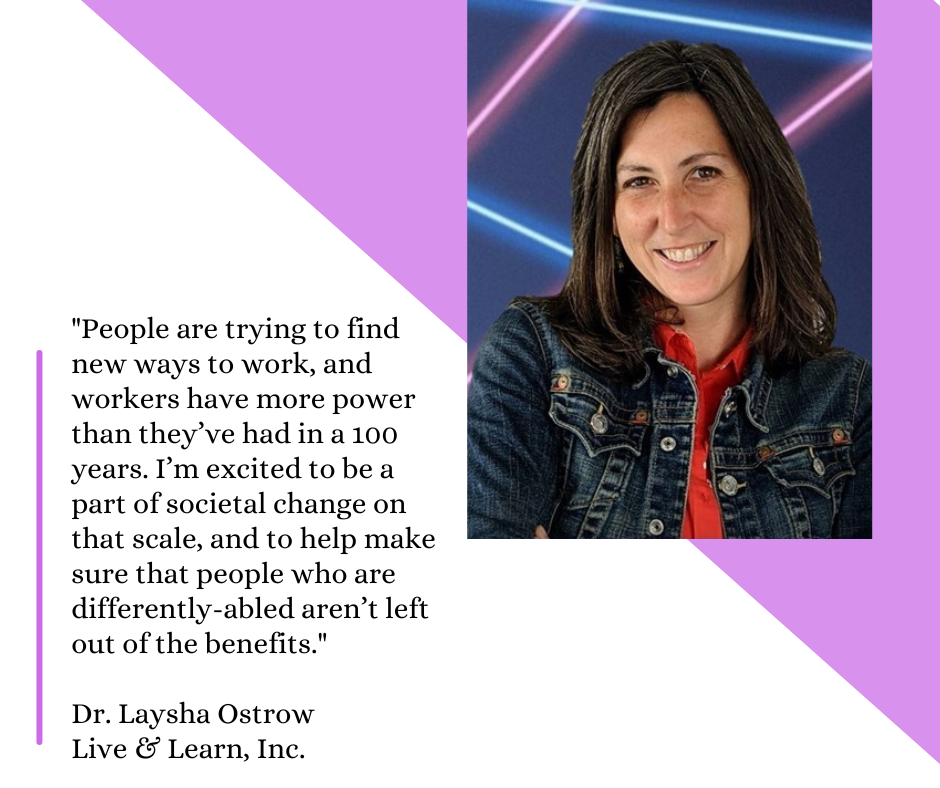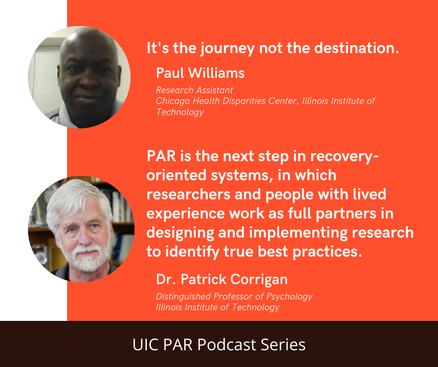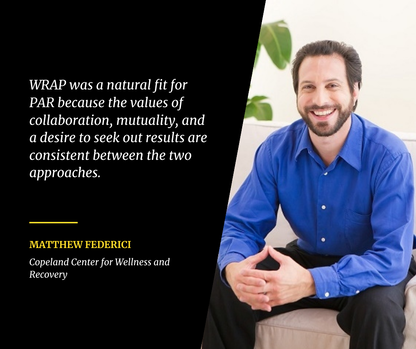What is participatory action research?
|
This methodological approach involves researchers working collaboratively with people whose lives are affected by the topic being studied. Together, they choose the research questions, decide how to gather and analyze data, and disseminate the results to a wide variety of audiences.
|
PAR Podcast Episodes
|
Episode Three
PAR in Action: Reflections on Leadership, Authenticity, and Self-Acceptance in Participatory Research Featuring Dr. Laysha Ostrow, CEO & founder, Live & Learn, Inc. Download the transcript of the 29 minute episode.
Read about Live & Learn’s PAR national web survey. Learn more about the Reclaiming Employment project highlighted in this episode. Access resources from Live & Learn (including manuscripts, interviews, reports). |
|
Episode Two
PAR in Action: Peer Navigators for the Health and Wellness of People with Psychiatric Disabilities Featuring Dr. Patrick Corrigan and Paul Williams of the Illinois Institute of Technology, Chicago Health Disparities Center Download the transcript of the 21 minute episode.
Access these PAR resources from the Chicago Health Disparities Center: A participatory research manual on involving Black/African American adults with mental health conditions in research A curriculum to prepare Black/African Americans with mental health conditions as research leaders A research publication on the use of PAR in examining the health care needs of Black/African Americans who are undomiciled and living with mental health conditions |
|
Episode One
PAR in Action: Studying Wellness Recovery Action Plan Featuring Matthew Federici of the Copeland Center for Wellness and Recovery and Jessica Jonikas, Center Associate Director Download the transcript of the 34 minute episode.
Access the WRAP research discussed in this episode. |




